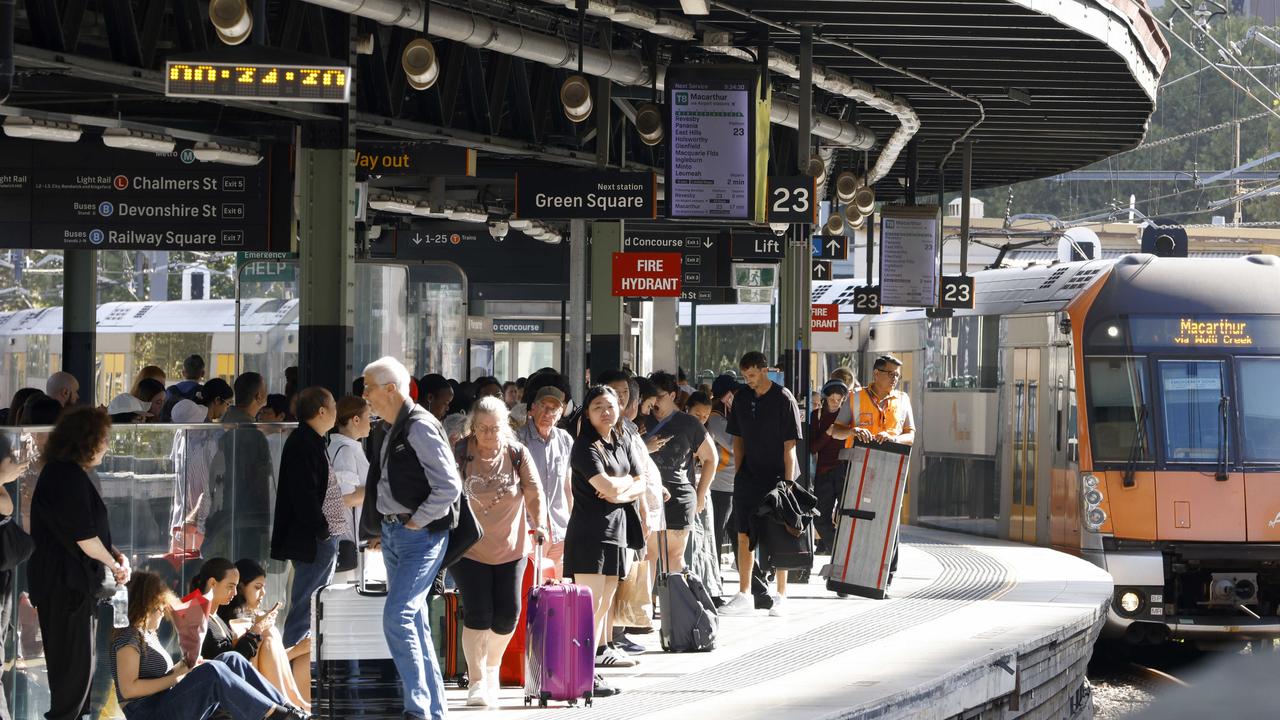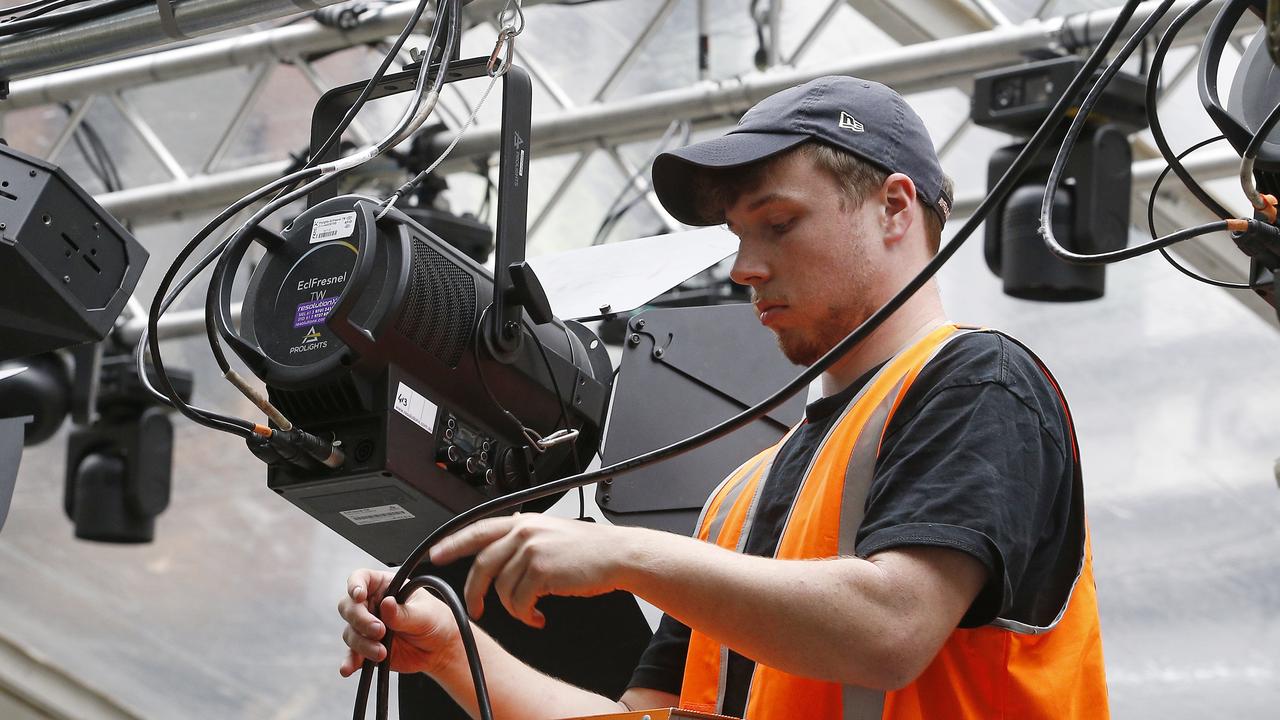Peta Credlin: Will AUKUS subs deal lead to nuclear power in Australia?
The AUKUS submarines alliance offers a wealth of benefits for Australia — not least of which is sparking a much-needed debate about nuclear energy, writes Peta Credlin.
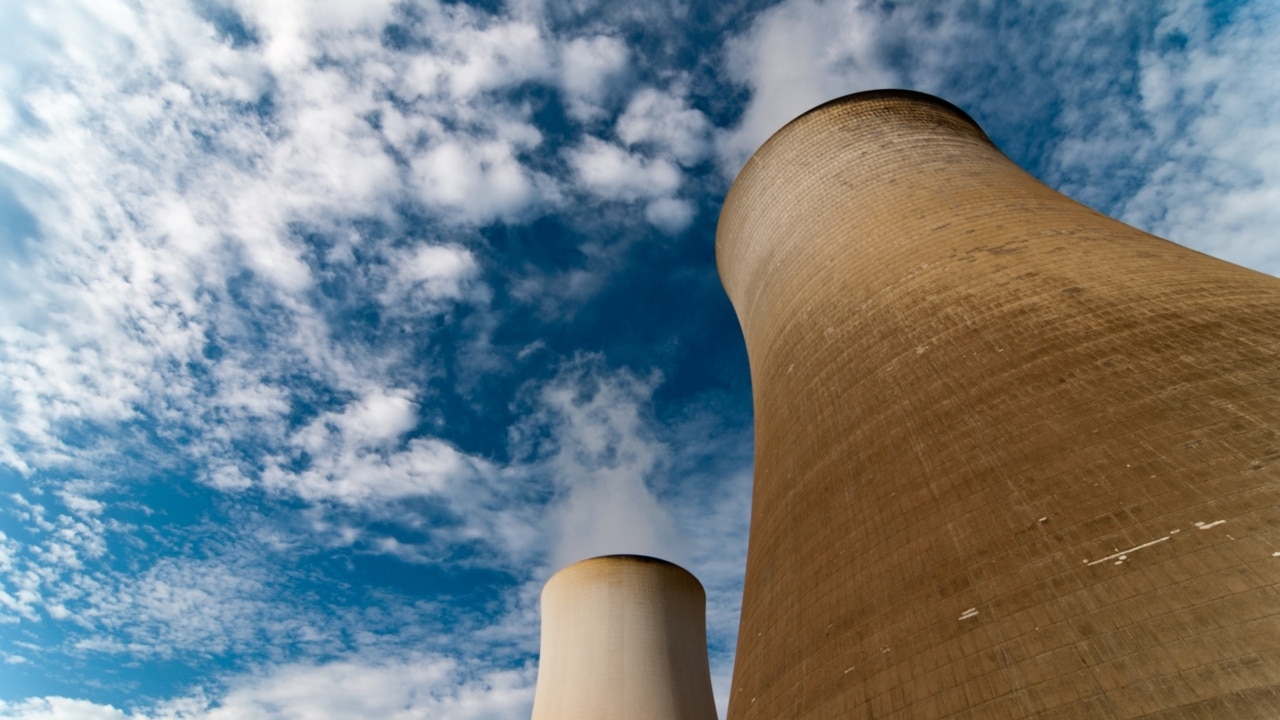
News
Don't miss out on the headlines from News. Followed categories will be added to My News.
Finally, leadership. In a pandemic where we’ve watched our politicians break us up into squabbling states and territories, the Prime Minister’s historic announcement of a new strategic partnership with key allies — and boldly replacing a bad submarine deal with a far superior nuclear fleet — is the first evidence in many months that we are still a country that can make big decisions when it matters.
The National Cabinet that was supposed to ensure a cohesive, unified response to the pandemic has been a shambles, with the PM reduced to being the chairman of a committee rather than a national leader, and the premiers doing their own thing regardless while the PM (meaning us, as taxpayers) had to pay for it.
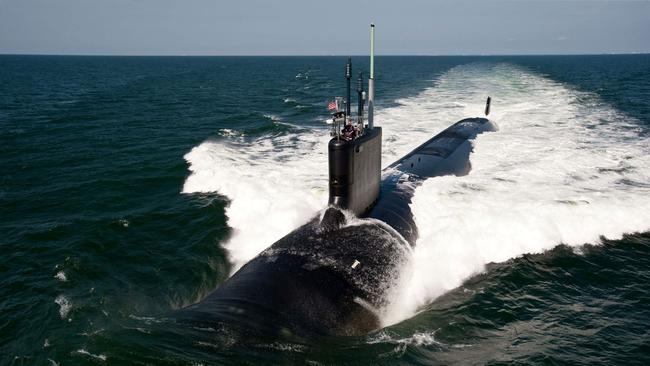
The most successful measure in our fight against Covid, the early border closures that stopped the disease from becoming rampant here before there were vaccines to reduce hospitalisation and death, was the one thing the national government could do on its own without needing buy-in from the states.
If nothing else, the pandemic has reminded us of the extent to which, under our constitution, government services are still provided by the states.
When all that really mattered was how well they were funded, the Commonwealth had a big role.
But as soon as the key issue was the competence with which public health services were being delivered, and more importantly the rules that could be enforced in dealing with a health emergency, state governments went from being sideshows to centre stage.
And what a bunch of B-grade clowns most of them have turned out to be: hiding behind “health advice” that’s never made public; heartlessly closing state borders against sick people needing treatment and families needing compassion, while making exceptions for celebrities, sports stars and billionaires; and (NSW partially excepted) locking us up at the first sign of infection, rather than ramping up health systems and looking for ways to manage lives and livelihoods without the blunt instrument of lockdowns which debilitates both.
This is why the Prime Minister’s leadership last week hit home; finally, the national government was again able to show the leadership we expect from it because this wasn’t a decision that the states needed to agree with, or implement.
The formation of a new security pact between the US, Britain and Australia, with our two oldest allies making available the nuclear technology needed for China-beating submarines, shows that we can still make big decisions as a nation.
And not a moment too soon either, given that China now has the navy and the missiles to back up its recent list of 14 demands on Australia — effectively that we become a Chinese economic colony, with force if it chooses.
AUKUS (and nuclear submarines) is the biggest decision government has made in decades.
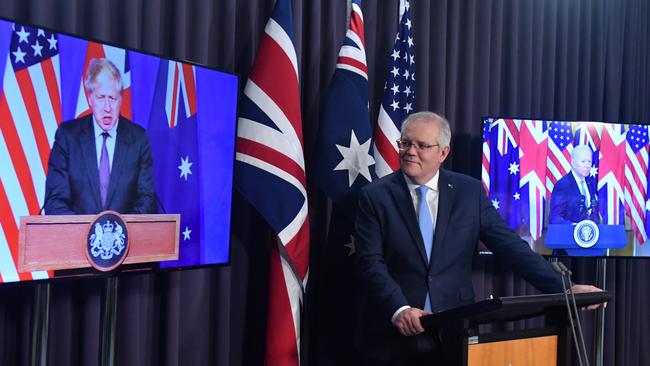
First, it gives us submarines that are more than capable of inflicting unacceptable damage on a belligerent superpower.
Second, it brings a post-Brexit Britain back into our region to help counter China.
And third, it makes us a much more significant member of the overall Western alliance.
But it’s one thing to make a decision, however momentous, and another to bring it to fruition; and this is where the PM, and Defence Minister Peter Dutton, will need to be just as strong.
Every naval acquisition since the Collins class subs in the 1980s has been bedevilled by military boffins’ insistence on “modifications for Australian conditions”. This went to ludicrous extremes with the now-scrapped French deal, to take a nuclear sub and waste 15 years redesigning and rebuilding it as a conventional diesel one.
The whole point of going nuclear is to get an off-the-shelf model that we know works. What we must not do now is take years to decide whether to get the British Astute class or the American Virginia class. And once that decision has been made, preferably in just a few months, construction should start straight away, at the first shipyard available, overseas if necessary.
If we couldn’t afford to wait until the mid-2030s to get the underwhelming French boats, we certainly can’t wait till the late 2030s to get the first nuclear sub.
Under AUKUS, for instance, what would be wrong with us building some of Britain’s surface ships and them building some of our submarines — rather than, as before, treating naval shipbuilding as a jobs racket for Adelaide?
Then there are all the other things needed to prepare for the likely strategic stand-off with China: such as having three months’ fuel supply on shore; better cyber defence; more protection for our military bases and cities; more and better-armed offshore patrol vessels that could be built quickly here; and, most importantly, a bigger military personnel pool through expanding the Reserves.
Finally, the one jarring aspect to the submarine announcement was the insistence that it was now right to have nuclear power at sea; but still wrong to have nuclear power on land.
I suspect that was the PM trying to avoid a nuclear energy scare campaign this side of the election, but I think Australians are smarter than that, and nuclear is a debate we should be prepared to have.
If it really is necessary to get to “net zero” by 2050, why not adopt the only proven means of delivering emissions-free baseload power?
If the hard-left and the activists really believe the planet must be saved, then nuclear is the answer — unless, of course, climate change is really more about wealth redistribution than saving the planet?
Watch Peta on Credlin on Sky News, weeknights at 6pm
Originally published as Peta Credlin: Will AUKUS subs deal lead to nuclear power in Australia?


